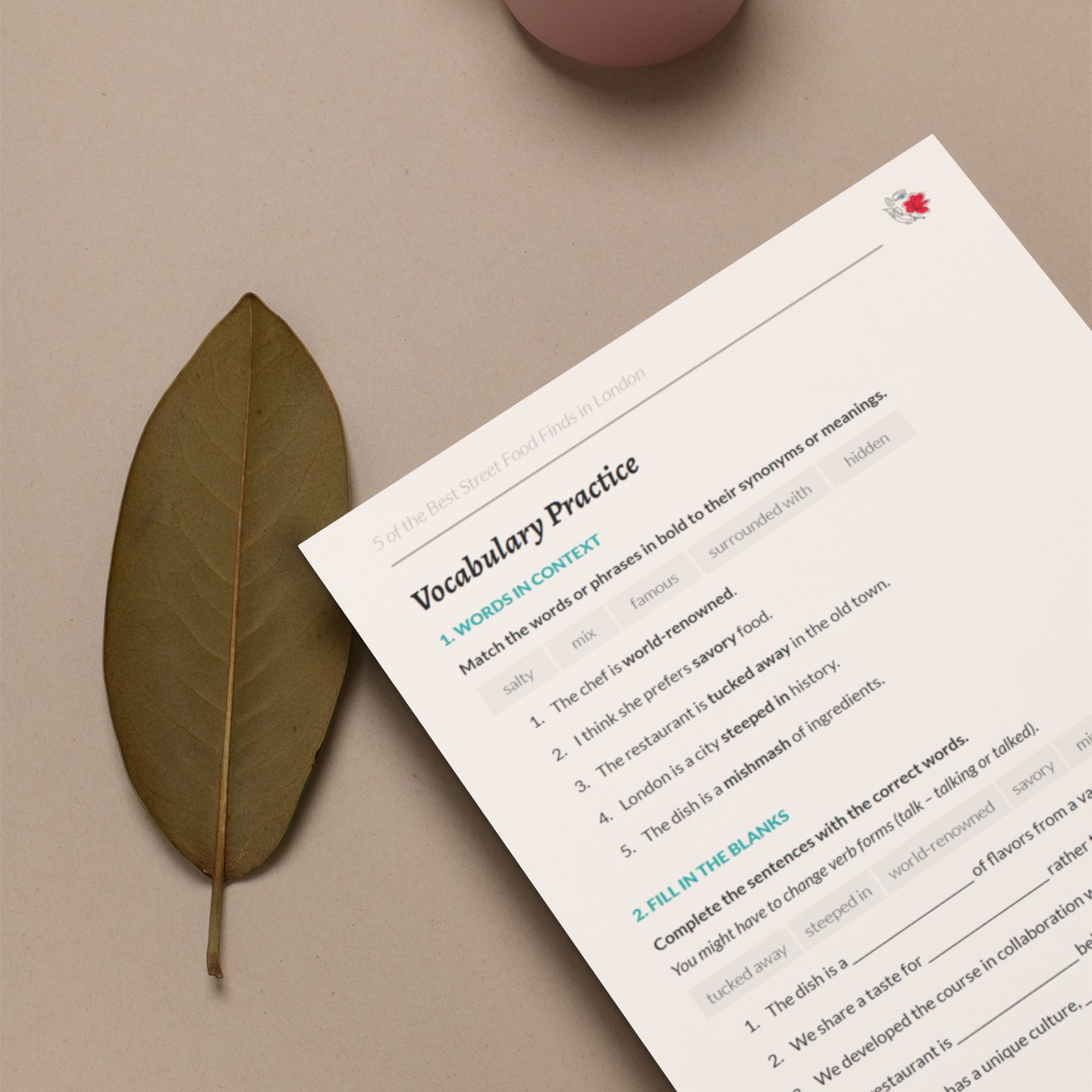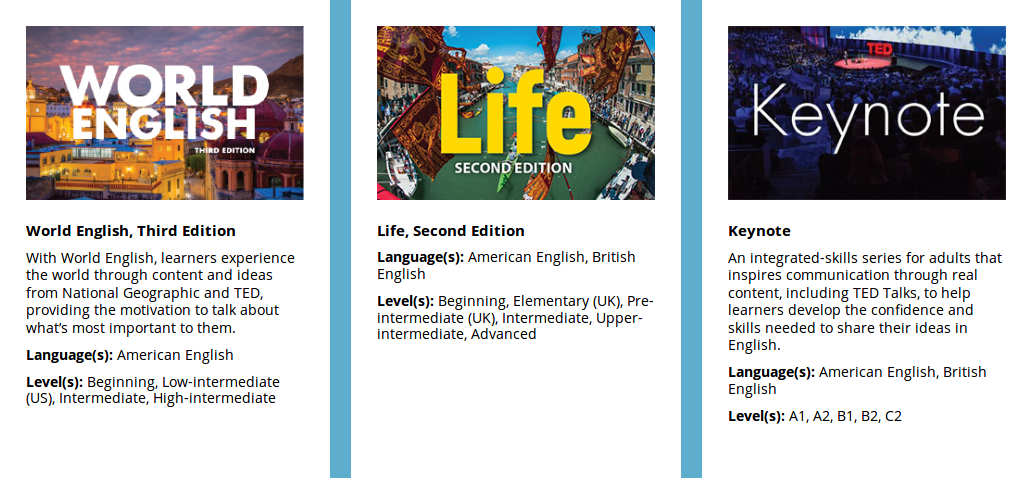4 American English Expressions and How to Use them
In this article, I’m going to teach you these 4 English expressions:
Teaching English Just Got Easier!
Save hours of time with an organized collection of high quality, easy-prep ESL lesson plans and worksheets right at your fingertips.
Do you want to know where I find the English phrases I share with you in the ‘What’s Another Way to Say…?’ series on Instagram?
I get them from real, authentic English content. From the podcasts, YouTube videos, and TV shows that I watch. From the people I talk to, and from the things I catch myself saying to my friends.
I do this because exposure to real content is the only way to help you understand spoken English.
When I first started teaching, I taught at academies and in most of them, I had to use the materials they offered as part of their English courses.
Some of those materials, I absolutely loved. One school I worked at used books that were published by the National Geographic. The books used articles and videos about nature, culture and travel to demonstrate new English vocabulary, expressions and grammar. The students were so immersed in the subjects. And because they were curious and interested in the material, their minds were receptive and open to learning.
During my time at that school, I realized the importance of using authentic videos and articles in English classes. For that reason, I only use real content in my private English lessons.
You might be thinking that using real content might discourage you because it’s difficult to understand. But surprisingly, from my experience, the exact opposite happens. Your motivation level will actually go up when the content you’re using is relevant, useful and practical.
It will be frustrating at first, but with time I guarantee you, it will get easier. Think back to the time you learned how to ride a bicycle. At the beginning, you used the small training wheels on the sides to get you started. But at one point, the training wheels needed to be taken out for you to actually learn how to ride.
Yes, you fell a few times, and it was challenging at first. But facing the challenge, falling and getting up is exactly what you needed to move on to the next level.
So, if you’re not doing it yet, start reading articles, watching videos or listening to podcasts in English about the topics that interest you. If you see a new word or an expression and you can’t find its meaning or definition, let me know and I’ll be happy to help you.
In today’s post, I’m going to teach you 4 English expressions, their meanings and the different ways you can use them.
First, I’m going to share with you the original definition of the word and how it’s used traditionally. Then, we’ll look at how the meaning changes in each particular context.
Let’s begin!
Unpack
When you pack a bag, box or a suitcase, you put things inside it. For example,
“Have you finished packing yet?”
“I usually wait till the last minute to pack my bags if I’m traveling.”
Unpack is the opposite. When you unpack a bag, box or a suitcase, you take your things out of it. So we can say,
“Can you help me unpack these boxes?”
“I’ve been here for a week and I haven’t unpacked my suitcase yet.”
In the expression I’m going to share with you today, unpack has a different meaning:
“Let me unpack that a little.”
When we unpack a problem or an idea, we’re making it easier to understand by examining all the different parts separately or by using simpler language to explain it. For example,
“Could you unpack this a little for us?”
“There is a lot of confusion about this issue, so I want to unpack that a little bit.”
On Edge
The edge of something is the place or line where it stops. So we can say:
“Don’t put the glass on the edge of the table.
But the expression on edge is used differently. If you’re on edge, you’re tense and unable to relax. We use it especially when we’re nervous because we’re expecting something unpleasant to happen. For example,
“Why are you on edge today?”
“He felt on edge about meeting his ex girlfriend.”
Be On the Fence
A fence is a barrier between two pieces of land. For example,
“We need to put a fence around our garden to keep the animals from eating the vegetables.”
But “be on the fence” or “sit on the fence” is an expression we use when we’re presented with a few options and we can’t decide which one to choose. We can also use it when we want to avoid saying which side of an argument we support. So we can say,
“He tends to sit on the fence at meetings.”
“I don’t know. I’m still on the fence with this one.”
Wild
Wild animals or plants live and grow in nature and are not controlled by people. For example,
“We used to pick wild flowers for my mom.”
“There are very few pandas living in the wild now.”
But in informal contexts, we also use wild when we want to say that something is exciting, special or unusual. So we can say,
“How was the party?” “It was wild!”
“The music they play is just wild.”
I hope this was useful! With all these new phrases, try to think of each one and imagine some of the situations that you could use them in. Also, make sure that you practice the whole phrase, and not just the word on its own.
If you have any questions, please ask me in the comments. Thanks for reading! Please share if it was useful.















